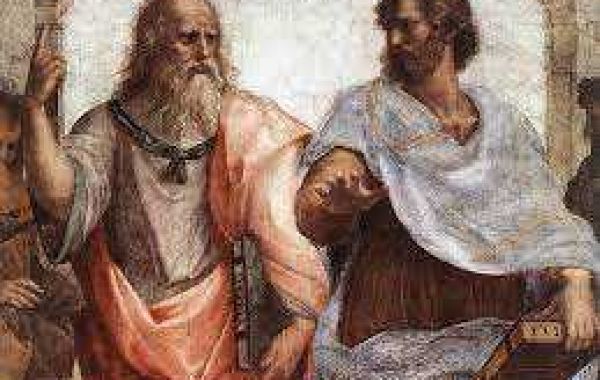The dialogue between Euthyphro and Socrates occurs in the king’s court, where they meet each other. Essentially, Euthyphro’s decision to take his father to court on murder accusations significantly surprised Socrates, thus leading to the piety dialogue between Euthyphro and Socrates. Since Socrates is facing trial after being charged with impiety, he intends to analyze whether Euthyphro appreciates the meaning of holiness through an enquiry about his definition of holiness. The piety dialogue assumes a conspicuous stance in the discussion since it is evident that Euthyphro is uncertain in his beliefs regarding the substance of piety; consequently, he keeps on altering his definitions. Socrates keeps the piety dialogue’s momentum, since he intends to use it as a defense to his own trial.
Euthyphro presents the first definition of piety as the prosecution of individuals for their transgressions, similar to his act of putting his father on trial premised on murder accusations; on the other hand, failure to prosecute such wrongs is inherently unholy. However, Socrates counters this argument intimating that it is not a satisfactory definition. He points out that Euthyphro’s definition is premised on an example that cannot be generalized and has no essential attributes which make pious objects pious.
Consequently, Euthyphro presents his second definition with regard to holiness. He defines holiness as actions, inactions or any factor that pleases the gods. Once more, Socrates disproves this definition by indicating that like humans, the gods also disagree amongst themselves with respect to what is pleasing. This means that a defined action can be both pleasing and displeasing in the eyes of the gods, which is essentially an impossible situation in a logical perspective.
As a result, the dialogue persists as Euthyphro attempts to provide a sufficient definition of piety that will satisfy Socrates. In order to formulate a third definition, Euthyphro opts to modify his second one; hence his third definition of holiness is as follows: all that the gods love is essentially pious; therefore, all that the gods hate is characteristically impious At this juncture, Socrates gets an opportunity to introduce a challenging question whether pious is loved by the gods because it is pious or it is pious because the gods love it. Euthyphro and Socrates come to an agreement that pious is loved by the gods since it is holy and things do not become pious through the mere essence of being loved by the gods. However, Socrates points out that while love is an integral aspect of piety, it is not an essential attribute of holiness, subsequently making Euthyphro unable to proceed with his piety definitions.
In view of the dialogue between these two individuals, it is evident that Socrates’ primary objective of engaging in the dialogue is to illustrate that there is no concise definition of holiness. This is because individuals define holiness variously on the basis of their beliefs on what characterizes a holy action, concept or object; accordingly, impiety should not be justified as a basis of prosecuting individuals. Socrates intends to enlighten people that what one person may consider as an impious act or object may be presumed by another person to be a significantly pious act or object. As such, Socrates shows that there is no consistency in people’s beliefs as far as holiness is concerned.
In Euthyphro’s first definition of holiness, Socrates presents a contradiction through pointing out that it is merely an example and does not integrate all essential attributes of holiness. As a result of this contradiction, Euthyphro is compelled to amend his beliefs and consequently his definition as well. In Euthyphro’s second definition, Socrates presents a contradiction that an action can be both pious and impious at the same time in the eyes of the gods given that they also disagree among themselves as to what pious act entails. Yet again, Socrates contradiction forces Euthyphro to revise his definition and formulate a third one which is subsequently refuted. The third definition is refuted on the premise that love is not a necessary attribute of holiness. Socrates realizes his objective of demonstrating that there is no actual definition of holiness after Euthyphro is unable to continue defining it. Essentially, Socrates achieves his objective through contradictions that make Euthyphro continue altering his beliefs towards what constitutes holiness. It was also well-describeed at https://essaysprofessor.com/rewrite-my-essay.html
I would define piety as any act that does not contradict gods’ commandments. Therefore, any action or inaction that does not break or undermine any gods’ commands is pious. Meanwhile, actions that go against gods commands or undermine the gods’ commands are inherently impious. However, in Socrates’ perspective this definition of piety would be refuted on the premise that an action may both be in alignment with the gods’ commands and against them at the same time; a situation that is logically improbable. Hence Socrates would argue that the gods may not agree amongst themselves with regard to what is right or wrong.
The argument is unending since both sides of the argument have merited grounds to base their ideas on. Therefore, my definition may also be contradicted and refuted by either of the sides or both sides; nevertheless, a conclusion must be premised on formidable positions from the dialogue and the stronger point should demonstrate if the proposed definition of holiness is correct, more so because Socrates contradicts it and my perspective is different. Thus, in a Socratic perspective, the definition of holiness as the aggregate actions that are in alignment with the gods’ commandments is inadequate.








